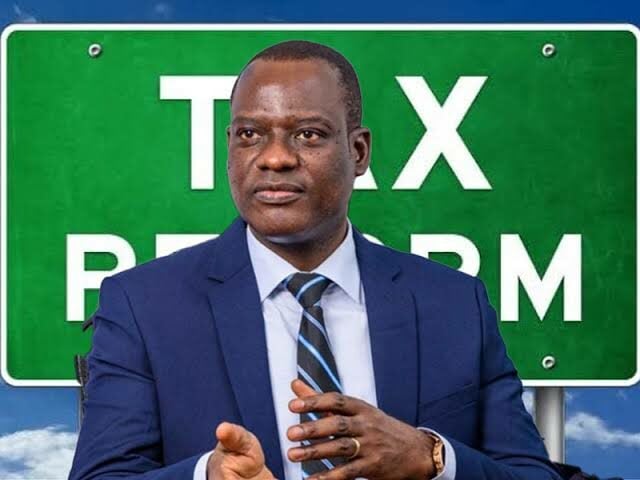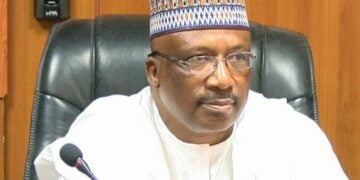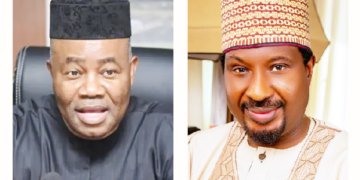The Chairman of the Presidential Committee on Fiscal Policy and Tax Reforms, Taiwo Oyedele said the proposed fuel surcharge was not to add additional burden on Nigerians but to generate dedicated revenue to fix the country’s decaying road network.
Oyedele identified the decaying road network as a major driver of high inflation, especially in food prices.
He made this known during an interview on Channels Television’s ‘Morning Brief’ on Tuesday, while addressing concerns that the tax reforms recently signed into law would worsen inflation and hurt vulnerable citizens.
“I know everybody is concerned about the impact on inflation, I’m concerned myself,” he admitted. “But we also know that around the world, road infrastructure is very important. Nigeria has about 200,000 kilometers of road, and only about 60,000 are okay. This is the major reason why transporting anything in Nigeria, whether goods or people, is costly and unsafe.”
He directly linked Nigeria’s poor road network to inflation, particularly the sharp difference between rural and urban food prices.
“If you look at the rural inflation of food and compare it with inflation of food in urban centers, sometimes the difference is as high as 5%. In most countries, that gap would be under 1%. The majority of the issues are to do with the state of the road and the multiple taxes being collected whenever you move goods around,” Oyedele explained.
He acknowledged that the removal of fuel subsidies had created fiscal space for the government. However, he argued that the revenues from subsidy removal were still insufficient to close Nigeria’s huge infrastructure gap.
“Even with the removal of fuel subsidy, which is helping government handle so many challenges, the huge gap we still have in terms of infrastructural development is not going to be addressed by those revenues alone,” he said.
“So the idea is for the economy to thrive and mobilise revenue in a way that doesn’t boost inflation, that does not affect the poor and vulnerable,” he said.
According to Oyedele, one of the strategies for the surcharge was to introduce it at a time when market conditions will absorb the impact, thereby minimising any burden on citizens.
“Some of the strategy for this surcharge could be to time it at a period when there is an appreciation in the value of the currency. The naira gained 1% yesterday alone; if the naira gains about 5% and you put in this tax, nobody will notice the changes in the pump price. Or if the price of crude oil in the international market drops by about 5%, you can also have it at that point,” he explained.
Oyedele stressed that the funds from the surcharge would be ring-fenced and dedicated to fixing Nigeria’s failing roads.
“Then we can all focus this money to ensure that it is dedicated to fixing roads that can make all our lives better and bring down the prices of items,” he said.
He also pointed to the success of the Road Infrastructure Tax Credit Scheme, which allows private companies to invest directly in road construction in exchange for tax credits.
“We have the road infrastructure tax credit that is done with the private sector; we can see the advantage. People who live in Apapa cannot make any complaints at all, because based on that policy the likes of Dangote, NLNG, Lafarge, and MTN are fixing roads,” he said.
“There’s nothing that says we can’t have a similar arrangement for the private sector to be involved in ensuring that this money is efficiently utilised,” Oyedele added.
The tax reform chief urged Nigerians to keep an open mind, stressing that if, after implementation, the policy does not serve its purpose, there are mechanisms to reverse it.
“I think people need to look back and see how these things can work for our country. And if it can’t work, then the process is there for the National Assembly to remove it from the law,” he said.





